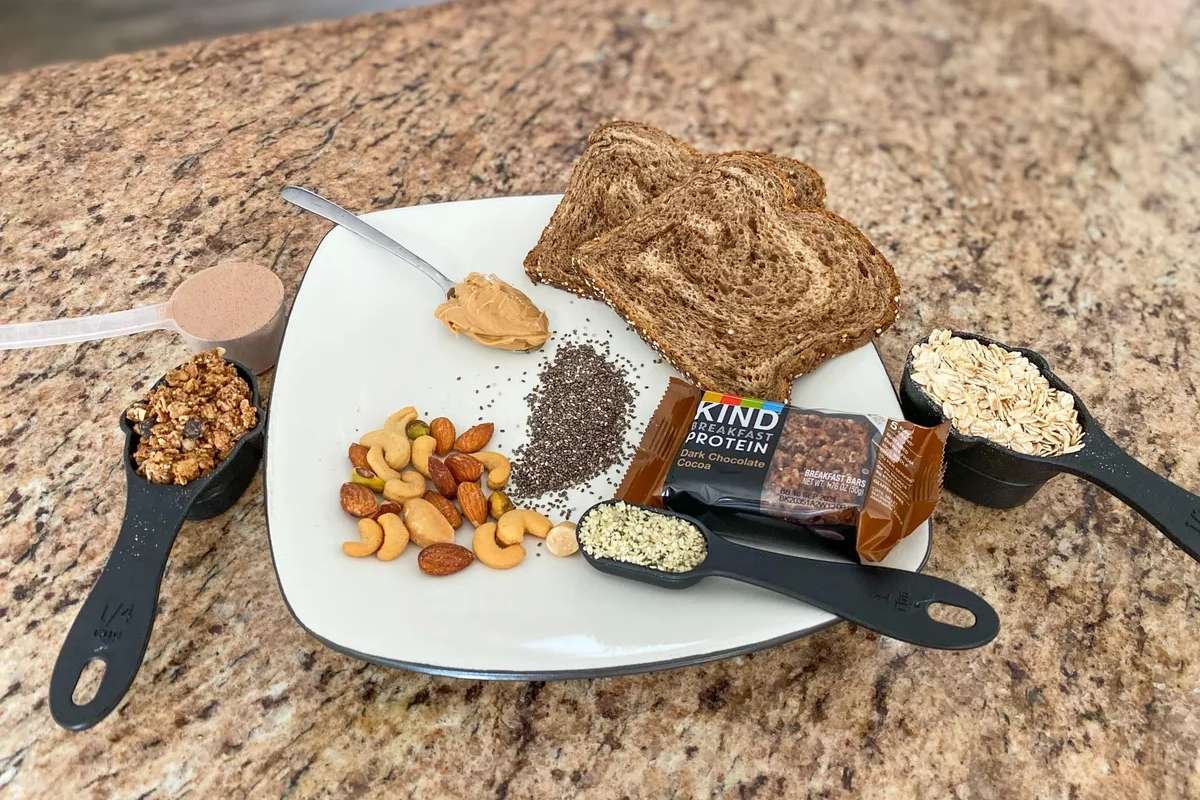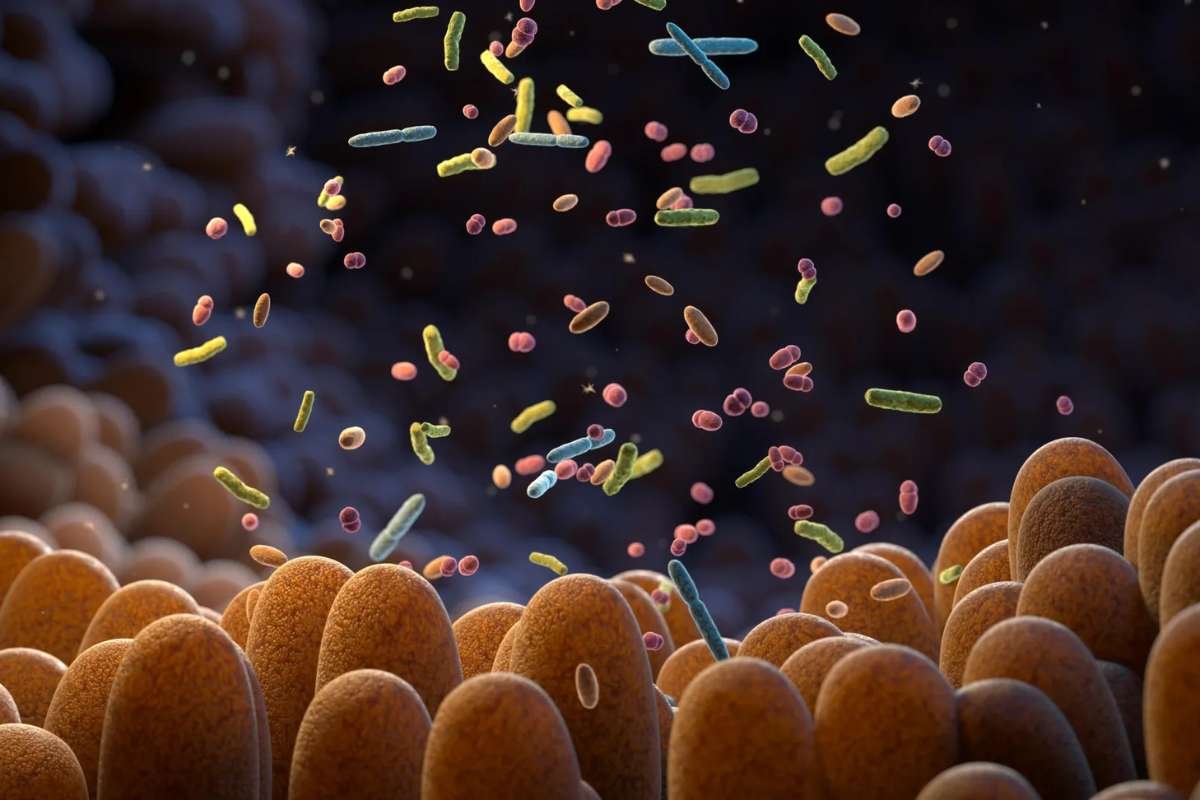What if everything you’ve learned about building muscle and fueling a high-performance body is wrong? All we hear about is animal proteins, leading many to assume that the folks who are on a plant-based diet must not be able to keep up.
However, there is a growing number of plant-based athletes who are beating these common myths by building incredible strength, endurance, and vitality without ever eating a piece of meat.
But the question is: how do those committed to vegetarianism or veganism improve their protein intake? Especially when pushing their physical limits or simply seeking complete nutritional support.
The answer can be found in a specific category that is designed to meet these unique demands. We are talking about protein supplements for vegetarians.
Let’s learn more about how they are changing what it means to be strong, healthy, and plant-powered. Also, understand how these options are helping in muscle building for vegetarians.
Why Protein Matters in a Vegetarian Diet?
Protein is essential to almost every bodily process because protein is an important element for repair and growth, hormone production, enzyme creation, and immune system function. For most individuals following a non-vegetarian diet, their dietary protein easily meets their essential amino acid needs.
A vegetarian diet still allows good sources of protein but requires more careful consideration than an animal-based diet. Many plant-based protein sources, such as legumes, grains, nuts, and seeds, are good options and also tend to be incomplete protein sources. Which means that they do not provide enough quantities of at least one essential amino acid.
In addition to lacking proteins, the digestibility and bioavailability of plant-based protein sources can also be lower due to the presence of anti-nutrients. Because of this, careful planning and variety in plant foods are needed in order to ensure a complete amino acid profile and proper protein consumption as a vegetarian.
How Do Protein Supplements for Vegetarians Help in Muscle Building?
Protein supplements provide a concentrated source of amino acids, which are vital for muscle repair and growth.
For vegetarians, who may find it challenging to consume sufficient and complete protein from whole foods alone, these supplements ensure a reliable and convenient supply of all necessary amino acids.
This availability is important for stimulating muscle protein synthesis (MPS) post-workout, which is the process where damaged muscle fibers are rebuilt stronger and larger. By regularly providing these vital nutrients, Protein Supplements for Vegetarians improve their muscle-building efforts and speed up recovery.
Types of Protein Supplements for Vegetarians:
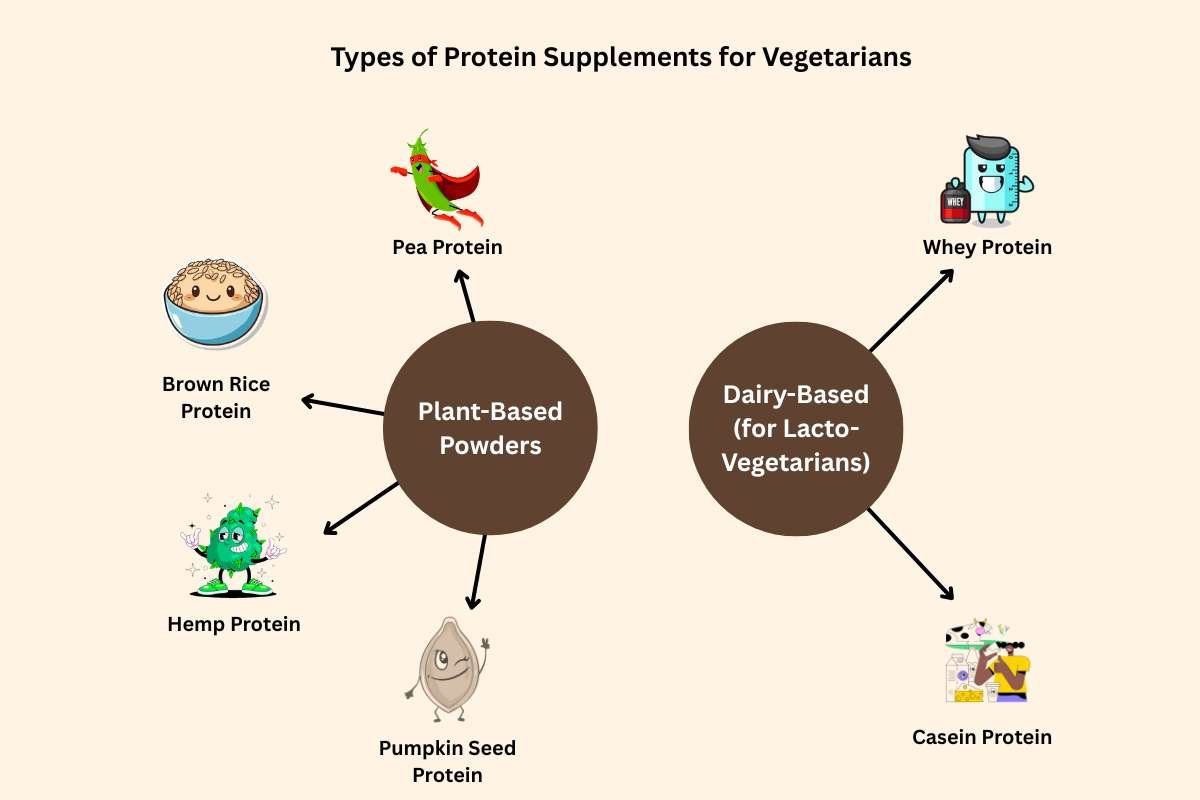
Vegetarians have two main categories of protein supplements, which are plant-based powders and dairy-based.
Plant-Based Powders:
These are best for vegans or those with dairy sensitivities. While some individual plant proteins might be incomplete, many brands blend them for a full amino acid profile.
- Pea Protein: Popular for its mild taste and good BCAA content, great for muscle repair.
- Brown Rice Protein: Hypoallergenic and digestible; often blended to ensure all essential amino acids are present.
- Hemp Protein: A complete protein rich in fiber, omega fatty acids, and minerals.
- Pumpkin Seed Protein: A good source of protein, antioxidants, and minerals, often used in blends.
Dairy-Based (for Lacto-Vegetarians):
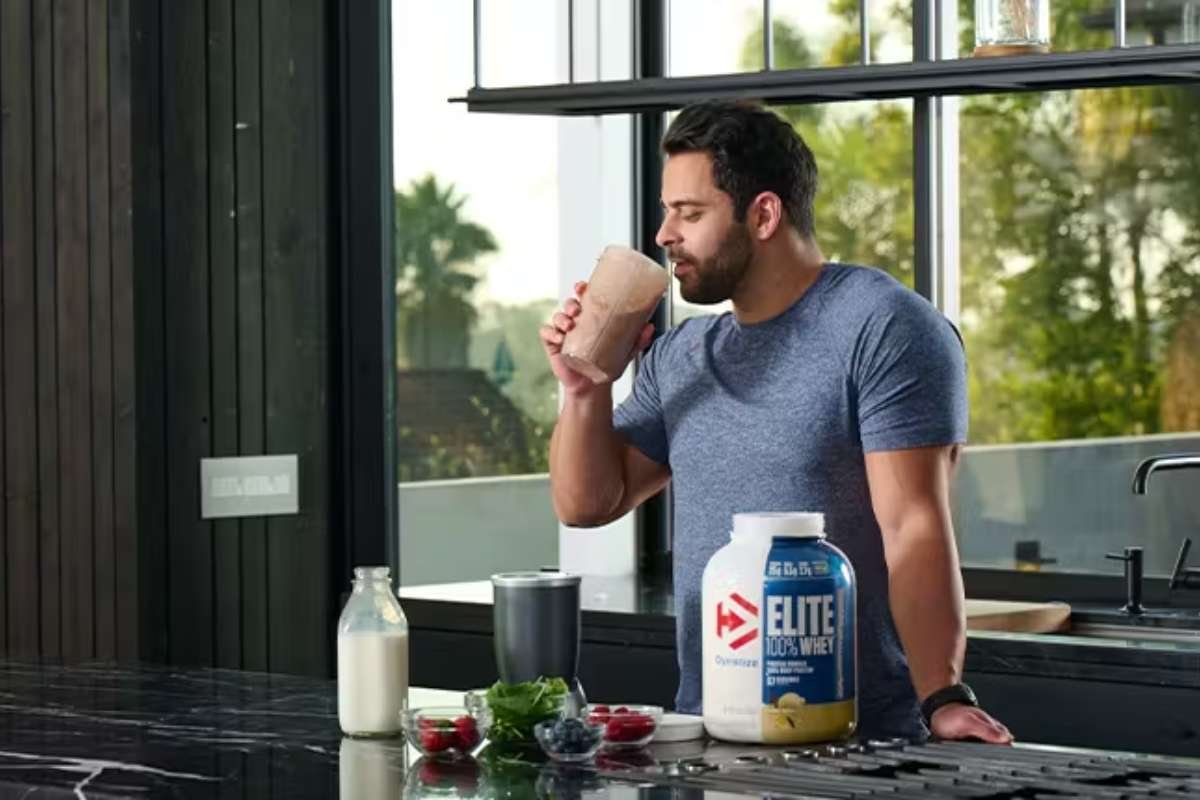
These milk-derived options offer high-quality, complete protein.
- Whey Protein: Fast-absorbing and rich in BCAAs, making it excellent for post-workout recovery.
- Casein Protein: Digests slowly, providing a continuous release of amino acids, ideal for overnight muscle repair.
Read Also: 12 Hidden Sources of Protein
Best Brands of Protein Supplements for Vegetarians:
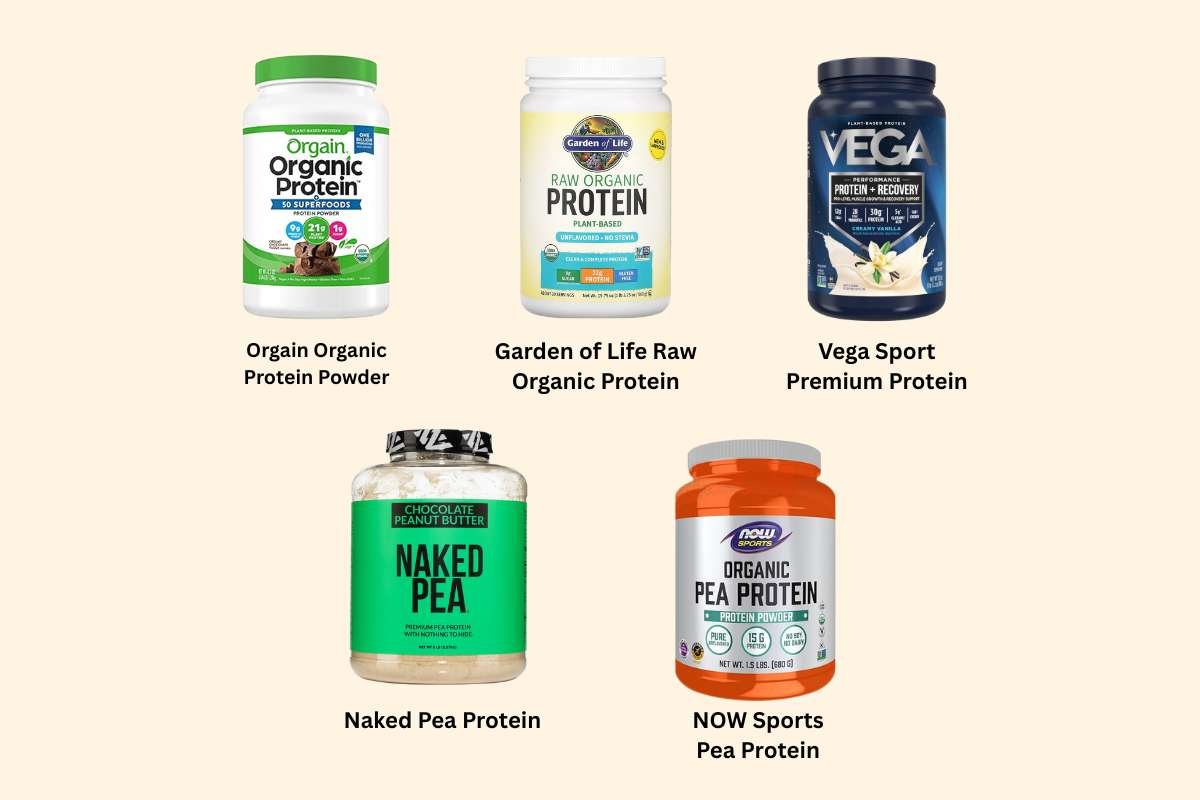
For vegetarians globally, protein supplements offer a convenient way to boost nutrient intake. When choosing, look for clean ingredients and certifications like USDA Organic or Non-GMO Project Verified. Here’s a quick look at some top-rated options:
- Orgain Organic Protein Powder: A popular plant-based blend, often featuring pea, brown rice, and chia proteins. It’s USDA Organic and Non-GMO Project Verified, frequently praised for its smooth texture and palatable taste, often incorporating superfoods and probiotics.
- Garden of Life Raw Organic Protein: This protein powerhouse is derived from multiple raw, organic sprouted plant sources, offering a complete amino acid profile. It’s USDA Organic, Non-GMO Project Verified, and known for its “raw” integrity and added probiotics and enzymes for digestion, though some users note a slightly earthy or gritty texture.
- Vega Sport Premium Protein: Designed for athletes, this plant-based protein combines pea, pumpkin seed, and sunflower seed proteins for a robust amino acid profile. It’s NSF Certified for Sport (ensuring no banned substances), Non-GMO Project Verified, and generally well-regarded for its taste and recovery-focused ingredients like BCAAs and tart cherry.
- Naked Pea Protein: True to its name, this is a minimalist option, containing only one ingredient: yellow pea protein. It’s often third-party tested and praised for its clean, unflavored profile, making it highly versatile for mixing into various recipes without altering flavor.
- NOW Sports Pea Protein: A reliable and straightforward pea protein isolate, this supplement is often Non-GMO Project Verified and Informed-Sport Certified (tested for banned substances). It’s typically unflavored, making it a flexible choice for those seeking a pure protein boost without added sugars or artificial ingredients.
Read Also: Fueling Gains: Unlocking the Power of a Vegetarian Diet for Bodybuilding
Case Study
A recently published study examined whether a new plant-based protein supplement can be used in place of whey protein to enhance performance and body composition in professional and semi-professional futsal players. Forty male athletes volunteered to participate in an eight-week study where they continued to eat their regular diet but started to use either the plant-based protein or whey protein supplement. Interestingly, the results showed no differences between the two groups for measurements of muscle mass, fat loss, strength, power, and aerobic performance. There were only small improvements in fat mass for both groups, regardless of protein type.
These results are promising for individuals looking for protein supplements for vegetarians because they show that if the amino acid profile of the protein is similar, plant-based protein can be just as effective as whey protein. In addition, for athletes who are consuming more than the recommended amount of protein (>1.6 g/kg body weight per day), it is unlikely that the plant-based protein will provide any additional benefit either.
Overall, plant-based protein supplements will be a legitimate and effective alternative to whey protein supplements for vegetarians athletes wanting to assist their performance and body composition with protein supplementation.
Source: https://pmc.ncbi.nlm.nih.gov/articles/PMC9355667/
Conclusion
Living successfully on a plant-powered diet has never been easier, or more impactful, than it is today. When you put the appropriate Protein Supplements for vegetarians in your body, you’re filling nutritional voids and activating your body for ultimate performance and beneficial recovery.
Paying attention to your choices, whether you utilize pea blends, hemp blends, or a dairy isolate, provides complete amino-acid profiles and muscle-supporting benefits at every meal and workout. Accept the simplicity, the reliability, and the proven outcomes of purposeful supplementation and unlock the potential of all that you can achieve as an active vegetarian.
FAQs:
1. Should vegetarians take protein supplements?
Generally speaking, athletes can easily get enough protein on a whole-food, plant-based diet, and they don’t need to consume protein powders or bars, or even focus on eating whole foods with high concentrations of protein, such as beans, to do so.
2. How do vegetarians get complete protein?
Vegetarians can obtain complete protein through plant-based sources like soy products (tofu, tempeh, and edamame), quinoa, buckwheat, hemp seeds, and amaranth.
3. What is the healthiest protein powder?
The “healthiest” protein powder depends on individual needs and preferences, but generally, options like whey protein isolate, pea protein, and hemp protein are considered good choices.

